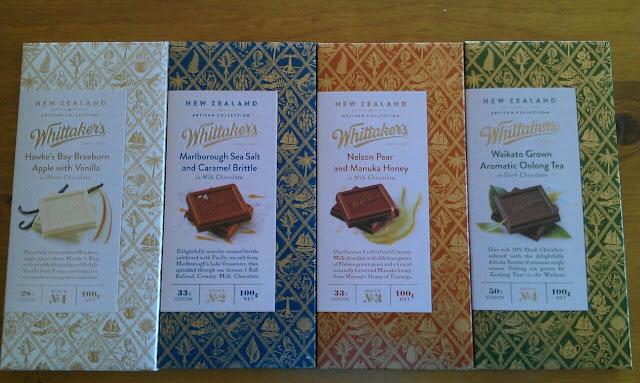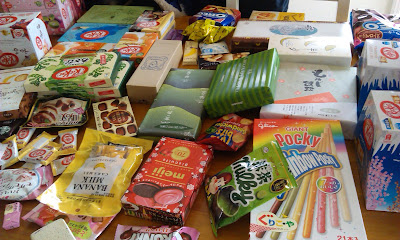Stars, Good Food, and Increasingly More Reasonable Anticipation
Hello consistent viewers who may or may not be checking in regularly on me or just searching for information on where to shop in Japan - which, according to my statistics, is by far the most viewed post on my unfortunately dwindling blog. I know I've written something along the lines of this about a year ago but I'm disappointed in myself in that I haven't been consistent with this blog. I've convinced myself that I'm too busy to update, while simultaneously quashing the urge to write. I always have something on my mind, but the likely reason behind not posting is my own concerns that my posts are insufficient, or that I've accidentally posted false information. But this has been said before. Setting such thoughts aside, I've finally summoned the courage to discuss something that is quite close to me.
Food is quite a huge passion of mine. It's one of the things I could discuss for hours, its anthropology and science, my favourites, my cravings, and my absolute go-to restaurants. This topic is also quite old, though it's only been now that I've decided to write something about it. But, hey, it's never too late to celebrate what I could consider one of the biggest turning points in modern dining.
Michelin stars are notoriously known for being quite exclusive, possibly controversially so, with a majority of its recipients being restaurants focusing Western/European cuisine. In understanding that the Michelin guide began in France and spread from Europe, this is hardly surprising. I am also in no way attempting to remove the appropriately-earned recognition from such restaurants, and those chefs with the incredible dedication to maintain such standards, but it's still necessary to address that the Michelin guide overlooks much of the world's cuisine. Sure, the number of stars in Asia is nothing to particularly scoff at, though the eateries with such awards have limited styles of cuisine, and the stars in Japan have been speculated to be part of a marketing scheme to win favour in the tire industry of Japan.
However, now, the Michelin scene - and the food scene all over the world - has slowly begun to change. Only a couple of months ago was it announced that two Hawker stalls in Singapore was amongst those that earned new stars. I was so elated at this news that I almost shrieked with joy. Similarly, recently, New Zealand has seen a modern Indian restaurant crowned winner of a Best Restaurant award, and two restaurants I am frequently hearing about specialise in Portuguese Indian and Southeast Asian cooking. I could not be happier in knowing that such food is gradually becoming not only more prevalent, but also appreciated, and in a way different to the appropriation of cuisine - but that's probably a post all on its own.
In any case, I anticipate that ethnic food can become more acknowledged. Technology is good, and innovation is good, but the hard work and centuries of history and culture involved in such a style of cooking is such a waste to overlook. I hope you can share my passions, too.
Food is quite a huge passion of mine. It's one of the things I could discuss for hours, its anthropology and science, my favourites, my cravings, and my absolute go-to restaurants. This topic is also quite old, though it's only been now that I've decided to write something about it. But, hey, it's never too late to celebrate what I could consider one of the biggest turning points in modern dining.
Michelin stars are notoriously known for being quite exclusive, possibly controversially so, with a majority of its recipients being restaurants focusing Western/European cuisine. In understanding that the Michelin guide began in France and spread from Europe, this is hardly surprising. I am also in no way attempting to remove the appropriately-earned recognition from such restaurants, and those chefs with the incredible dedication to maintain such standards, but it's still necessary to address that the Michelin guide overlooks much of the world's cuisine. Sure, the number of stars in Asia is nothing to particularly scoff at, though the eateries with such awards have limited styles of cuisine, and the stars in Japan have been speculated to be part of a marketing scheme to win favour in the tire industry of Japan.
However, now, the Michelin scene - and the food scene all over the world - has slowly begun to change. Only a couple of months ago was it announced that two Hawker stalls in Singapore was amongst those that earned new stars. I was so elated at this news that I almost shrieked with joy. Similarly, recently, New Zealand has seen a modern Indian restaurant crowned winner of a Best Restaurant award, and two restaurants I am frequently hearing about specialise in Portuguese Indian and Southeast Asian cooking. I could not be happier in knowing that such food is gradually becoming not only more prevalent, but also appreciated, and in a way different to the appropriation of cuisine - but that's probably a post all on its own.
In any case, I anticipate that ethnic food can become more acknowledged. Technology is good, and innovation is good, but the hard work and centuries of history and culture involved in such a style of cooking is such a waste to overlook. I hope you can share my passions, too.



Comments
Post a Comment